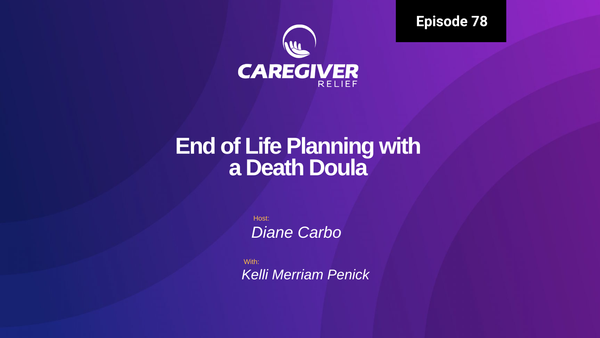Understanding Dementia Causes: A Comprehensive Analysis
This comprehensive analysis delves into the causes of dementia, including Alzheimer's, vascular dementia, and lifestyle factors. It discusses reversible and irreversible types, emphasizing the importance of early detection and lifestyle changes for prevention and management.

Dementia, a term often misunderstood, is not a singular disease but a collective term that encompasses a variety of medical conditions affecting mental functions. It signifies a severe impairment of brain functions and cognitive abilities due to brain damage, hindering daily life and activities. The complexity of dementia lies in its varied causes; each patient’s experience with dementia can stem from different underlying conditions. Knowing the causes is vital, particularly for those caring for the elderly, as it aids in early identification and treatment, potentially prolonging and improving the quality of life.
Reversible Causes of Dementia
Dementia, often perceived as a permanent condition, can sometimes be reversible, depending on its cause. Several conditions can mimic dementia or cause dementia-like symptoms, which, if correctly identified and treated, can lead to a complete or partial reversal of symptoms. Managing cardiovascular risk factors, such as high blood pressure, can also play a crucial role in addressing reversible causes of dementia.
These reversible causes include:
Alcohol Consumption
Excessive alcohol intake can lead to a specific type of dementia known as alcohol-related dementia, which includes conditions like Wernicke-Korsakoff syndrome. Excessive alcohol intake can lead to mild cognitive impairment, which may progress to a specific type of dementia known as alcohol-related dementia. This is often due to the direct neurotoxic effects of alcohol, malnutrition, liver disease, and especially thiamine (vitamin B1) deficiency associated with prolonged alcohol abuse. With abstinence from alcohol, nutritional rehabilitation, and in particular, thiamine supplementation, many of these cognitive impairments can be reversed or significantly improved.

Excessive Alcohol intake can cause dementia
Head Injuries
Traumatic brain injuries, resulting from accidents, falls, or sports injuries, can lead to cognitive impairments and memory problems that resemble dementia. The reversibility of these symptoms largely depends on the injury's severity and the brain's healing process. In some cases, with appropriate medical treatment and rehabilitation, cognitive functions can improve over time, even years after the injury.
Cerebrospinal Fluid Build-up
Conditions like Normal Pressure Hydrocephalus (NPH), characterized by an accumulation of cerebrospinal fluid in the brain's cavities, can impair brain function, leading to dementia-like symptoms such as memory loss, difficulty walking, and incontinence. This condition is particularly notable for its potential reversibility. With proper medical intervention, such as surgical procedures to drain the excess fluid, many patients experience significant improvement in their symptoms.
Vitamin Deficiencies
Certain vitamin deficiencies, particularly B vitamins like B1 (thiamine), B6, and B12, can cause cognitive impairments. These deficiencies are often seen in malnutrition, alcoholism, and certain absorption disorders. Symptoms can include memory loss, confusion, and, in severe cases, psychosis. With proper diagnosis and supplementation of these vitamins, cognitive functions can often be restored to normal.
Thyroid Disorders
Both hyperthyroidism and hypothyroidism can lead to dementia-like symptoms. These conditions affect the body's metabolic rate, which can have a significant impact on brain function. Symptoms may include memory problems, slowed thinking, and concentration difficulties. With appropriate thyroid hormone treatment, cognitive symptoms are often reversible.
Infections
Certain infections, particularly those affecting the central nervous system like HIV, syphilis, and Lyme disease, can lead to cognitive impairments. These infections can cause inflammation and other changes in the brain that result in dementia-like symptoms. With appropriate treatment of the underlying infection, it's possible for cognitive functions to improve.
Depression
In some cases, severe depression can manifest as dementia-like symptoms, a condition sometimes referred to as pseudodementia. This includes memory impairments and difficulty concentrating. Unlike true dementia, these cognitive issues are a byproduct of the depressive disorder and can be reversible with proper psychiatric treatment including medication and therapy.

Untreated depression may cause dementia
Medication Side Effects
Certain medications, especially those with anticholinergic properties, can impair cognitive function, leading to memory loss and confusion. This is particularly common in older adults. Reviewing and adjusting medication can lead to a substantial improvement in cognitive functions.
Recognizing these reversible causes of dementia is crucial for early intervention and treatment. It offers hope for those diagnosed with dementia-like symptoms, as with appropriate medical care and lifestyle changes, there is a potential for significant improvement or complete reversal of symptoms. This underscores the importance of comprehensive medical evaluation and individualized treatment in cases of cognitive decline.
Irreversible Causes of Dementia
Diseases with Dementia-Like Symptoms
Dementia, characterized by a decline in memory, communication, and thinking skills, significantly impairs daily life. While some diseases lead to true dementia, others cause symptoms that are similar to dementia. Understanding these diseases is crucial for accurate diagnosis and effective treatment.
Alzheimer's Disease
Alzheimer’s is the most common cause of dementia. One of the earliest symptoms of Alzheimer's disease is memory loss, often affecting the hippocampus, which is crucial for memory formation. It’s a progressive brain disorder that slowly destroys memory and thinking skills, and eventually, the ability to carry out simple tasks. Symptoms include memory loss, confusion, difficulty in speaking and writing, and changes in personality and behavior.
Vascular Dementia
The second most common type of dementia, vascular dementia, occurs due to microscopic bleeding and blood vessel blockage in the brain. It’s often caused by strokes or other conditions that damage blood vessels, leading to changes in thinking skills, organization, attention, and problem-solving abilities.
In some cases, individuals may experience mixed dementia, which involves a combination of vascular dementia and Alzheimer's disease.
Lewy Body Dementia
Characterized by the presence of Lewy bodies (abnormal deposits of a protein called alpha-synuclein) in the brain, this type of dementia shares symptoms with Alzheimer's and Parkinson's diseases, such as memory loss, sleep disturbances, visual hallucinations, and movement disorders.
Frontotemporal Dementia
This form affects the frontal and temporal lobes of the brain. Unlike Alzheimer's, it often starts at a younger age and involves drastic personality, behavior, and language changes. Memory is typically less affected in the early stages.

Parkinson's has a type of dementia
Parkinson's Disease
Parkinson's disease is a progressive nervous system disorder that affects movement. As it progresses, it often leads to Parkinson's disease dementia, characterized by problems with reasoning, memory, speech, and judgment.
Huntington's Disease
This genetic disorder leads to the progressive breakdown of nerve cells in the brain. Its symptoms include movement disorders, cognitive decline (often resembling dementia), and psychiatric disorders.
Creutzfeldt-Jakob Disease
This rare, degenerative, and invariably fatal brain disorder typically occurs later in life and has rapid progression. Symptoms include dementia, memory loss, personality changes, and hallucinations.
Normal Pressure Hydrocephalus
Caused by the build-up of cerebrospinal fluid in the brain, it leads to problems with walking, memory, and bladder control. The symptoms can mimic those of dementia but are potentially reversible.
Wernicke-Korsakoff Syndrome
This chronic memory disorder is caused by severe thiamine (vitamin B1) deficiency, commonly associated with alcohol misuse. It leads to severe memory problems, confusion, and coordination issues.
Brain Tumors
Certain brain tumors can affect cognitive functions and behavior, resembling dementia. Symptoms depend on the tumor's location and size.
HIV-Associated Neurocognitive Disorder (HAND)
In some cases, HIV can cause cognitive impairments in advanced stages, leading to problems with memory, concentration, and decision-making.
Syphilis
In its late stages, untreated syphilis can affect the brain and nervous system, leading to dementia-like symptoms.

Head injuries cause brain damage
Chronic Traumatic Encephalopathy (CTE)
Seen in individuals with a history of repeated head injuries, CTE is a progressive degenerative brain condition. Symptoms can include problems with memory, behavior, personality changes, and mood disorders.
These diseases, among others, can manifest with dementia-like symptoms, making early and accurate diagnosis challenging yet critical. Treatment approaches vary significantly depending on the underlying cause, highlighting the importance of thorough medical evaluation and testing in cases of cognitive decline.
LIfestyle Changes Can Slow the Progression of Dementia
The Inevitability and Prevention of Dementia
The Inevitable Aspects of Dementia
The inevitability of dementia in certain cases is a hard truth, particularly when it comes to genetic predispositions and chronic diseases. Genetics play a crucial role in diseases like Alzheimer's and Huntington's, where the risk of dementia is significantly heightened due to inherited genetic mutations. Similarly, chronic conditions such as cardiovascular diseases and diabetes can also increase the likelihood of developing dementia, particularly vascular dementia, due to their impact on blood flow and overall brain health.
Understanding these risk factors is essential. It enables individuals, especially those with a family history of dementia or chronic health issues, to be vigilant about the signs and symptoms of cognitive decline. Early detection is key, as it can lead to timely interventions that might not cure dementia but can help manage symptoms, slow down progression, and significantly enhance the quality of life.

Walking can slow the progression of dementia
Prevention Through Lifestyle Changes
While some aspects of dementia are beyond control, lifestyle choices offer a beacon of hope in delaying or even preventing the onset of certain types of dementia. Key lifestyle changes that can make a difference include:
Regular Physical Exercise: Engaging in regular physical activity is beneficial for overall health and particularly for brain health. Exercise improves blood flow to the brain, reduces inflammation, and can stimulate brain cell growth and repair. Activities like walking, swimming, or yoga can be particularly beneficial.
Balanced Diet: A diet rich in fruits, vegetables, whole grains, and lean proteins, and low in saturated fats and sugars, can reduce the risk of dementia. The Mediterranean diet, for example, has been linked to a lower risk of cognitive decline.
Mental Stimulation: Keeping the brain active is crucial. Engaging in activities that challenge the brain, such as puzzles, reading, learning new skills, or even social interactions, can help maintain cognitive function and delay the onset of dementia symptoms.
Avoidance of Harmful Substances: Reducing alcohol intake and avoiding smoking are critical. Both alcohol and tobacco have been linked to an increased risk of dementia. Excessive alcohol consumption, in particular, can lead to conditions like Wernicke-Korsakoff syndrome, a type of dementia caused by thiamine (vitamin B1) deficiency.
Managing Chronic Conditions: Proper management of conditions like hypertension, diabetes, and heart disease is crucial in reducing the risk of developing dementia. These conditions, if not managed well, can lead to decreased blood flow to the brain and subsequent brain cell damage.
Mental Health Care: Chronic stress and depression have been associated with an increased risk of dementia. Managing stress through techniques such as mindfulness, meditation, and seeking professional help for mental health issues can be beneficial.

Games are great for preventing dementia
Benefits of Playing Games for People with Dementia
Engaging in game-playing can be highly beneficial for individuals with dementia. This activity not only provides a source of enjoyment but also offers various cognitive, emotional, and social advantages. Here's how playing games can positively impact people with dementia:
Cognitive Stimulation
Memory Enhancement: Games that require memory recall can help stimulate and engage the brain, potentially aiding in the retention of cognitive functions for longer periods.
Improved Focus and Concentration: Regularly engaging in games can help enhance concentration levels and attention span, which are often compromised in dementia.
Problem-Solving Skills: Games involving strategy or puzzles encourage problem-solving and critical thinking, which can help maintain these skills in dementia patients.
Emotional Well-being
Stress Reduction: Playing games can be a relaxing and enjoyable activity, reducing stress and anxiety levels, which are common in dementia patients.
Sense of Achievement: Successfully completing a game or puzzle can provide a sense of accomplishment and boost self-esteem, which is particularly valuable as dementia progresses.
Joy and Entertainment: Games can bring joy and laughter, offering a much-needed respite from the daily challenges faced by individuals with dementia.

Practice mindfulness every day
Encouraging Socialization: Group games promote social interaction, helping to combat feelings of isolation and loneliness that often accompany dementia.
Fostering Connections: Playing games with family members or caregivers can strengthen bonds and create shared positive experiences.
Improving Communication Skills: Engaging in social games can encourage verbal and non-verbal communication, helping to maintain these skills.
Motor Skills Maintenance
Fine Motor Skill Development: Games that require dexterity, such as card games or board games, can help in maintaining fine motor skills.
Hand-Eye Coordination: Fast-paced or action-based games can assist in preserving hand-eye coordination.
Routine and Structure
Creating a Routine: Incorporating game-playing into a daily or weekly routine can provide structure, which is comforting for individuals with dementia.
Promoting a Sense of Normalcy: Games can be part of regular leisure activities, helping individuals with dementia feel more connected to normal life.
Adapting to Abilities
Games for Different Stages: Games can be adapted to suit the cognitive abilities and interests of the individual, ensuring they are accessible and enjoyable regardless of the dementia stage.
Family Involvement
Engaging Family Members: Playing games offers an opportunity for family members to engage actively with their loved ones, creating moments of connection and understanding.
Playing games offers multifaceted benefits for individuals with dementia, encompassing cognitive stimulation, emotional support, social interaction, and physical engagement. It's an accessible and enjoyable way to enhance the quality of life for those with dementia, providing a sense of joy, achievement, and connection in their daily lives.
Conclusion
The balance between the inevitability and preventability of dementia is delicate. While certain factors like genetics and chronic diseases set a predisposed path, lifestyle choices and early interventions offer a substantial scope for prevention and management. By adopting healthier lifestyles and being vigilant about early symptoms, individuals can significantly impact their likelihood of developing dementia or at least delay its onset and mitigate its severity.
Frequently asked Questions
What is the Main Cause of Dementia?
Answer: The main cause of dementia is damage to the brain cells, which interferes with the ability of brain cells to communicate with each other. This communication disruption affects thinking, behavior, and feelings. The most prevalent underlying disease causing dementia is Alzheimer disease, which is responsible for a significant majority of cases.
What is the Most Common Cause of Dementia?
Answer: Alzheimer's disease is the most common cause of dementia. It accounts for 60-80% of cases. Alzheimer's is a progressive brain disorder that leads to the degeneration and death of brain cells, resulting in memory failure, personality changes, and problems carrying out daily activities.
3: What are the Causes of Dementia in the Elderly?
Answer: In the elderly, dementia affects a significant number of individuals and can be caused by a variety of factors, including Alzheimer’s disease, vascular dementia (often due to strokes), Lewy body dementia, and frontotemporal dementia. Other contributing factors can include age-related changes in the brain, genetics, and health conditions like heart disease, diabetes, and chronic alcohol use. Brain injuries and certain vitamin deficiencies can also lead to dementia in elderly individuals.
4: Do Urinary Tract Infections Cause Dementia in the Elderly?
Answer: Urinary tract infections (UTIs) do not cause dementia, but they can cause dementia-like symptoms in the elderly, such as confusion, agitation, or delirium. These symptoms are often temporary and resolve with the treatment of the infection. However, in individuals with pre-existing dementia, a UTI can exacerbate their cognitive impairment. Therefore, it's crucial for UTIs to be promptly diagnosed and treated in elderly patients, especially those with known cognitive impairments.
Sources
http://www.emedicinehealth.com/dementia_overview/page2_em.htm
http://www.webmd.com/alzheimers/guide/alzheimers-dementia
http://www.mayoclinic.com/health/dementia/DS01131/DSECTION=causes
You might also like this article:




